Microbes
-
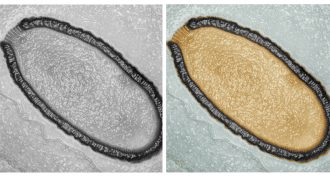 Microbes
MicrobesReturn of the giant zombie virus
Scientists have discovered a new type of virus in Siberian soils. It's the largest virus ever discovered. And guess what: It could infect cells even after 30,000 years in cold storage.
-
 Health & Medicine
Health & MedicineSome of chocolate’s health benefits may trace to ‘bugs’
Dark chocolate offers people a number of health benefits. A new study finds that the breakdown of chocolate by microbes in the human gut be behind some benefits.
-
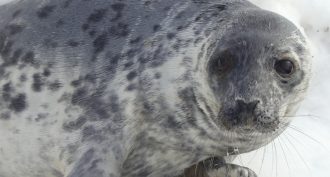 Microbes
MicrobesArctic thaw is spreading wildlife diseases
Polar animals are encountering new, killer parasites as melting ice unlocks their access to new hosts.
-
 Health & Medicine
Health & MedicineHIV: Reversing a death sentence
New research suggests the infection, while serious, can be treated — and maybe cured.
By Bryn Nelson -
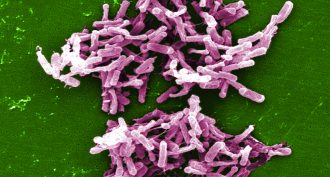 Health & Medicine
Health & MedicineMining medicine from poop
Researchers find a much less yucky way to treat people with a common killer infection.
-
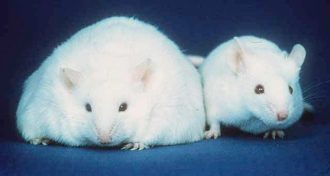 Microbes
MicrobesSlimming germs
In the gut, the right microbe mix can help keep off extra weight — at least in mice.
-
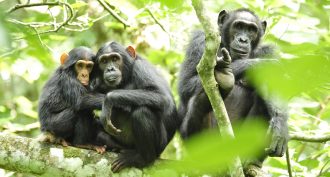 Health & Medicine
Health & MedicineExplainer: Where and when did HIV begin?
The virus that causes AIDS may have evolved in monkeys or apes more than a century ago.
By Bryn Nelson -
 Microbes
MicrobesMystery microbes of the sea
Biologists find archaea a true curiosity. They make up one of life’s three main branches. The two better known branches are bacteria and eukaryotes (u KARE ee oatz). That last branch includes animals, plants and fungi. But archaea have remained mysterious. Very little is known about them. In fact, their unique status wasn’t even recognized until relatively recently, in 1977.
By Douglas Fox -
 Health & Medicine
Health & MedicineCamels linked to mystery disease
A mysterious and deadly virus has sickened 94 people — killing 46 — in parts of the Middle East, Europe and northern Africa. A new study finds that camels (the one-humped type) may have introduced the new disease to people. The germ responsible is a virus that lives in people’s lungs, throats and noses. Scientists recently named the disease it causes Middle East respiratory syndrome, or MERS.
-
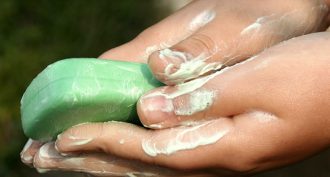
-
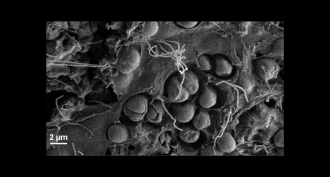 Environment
EnvironmentHome, plastic home
Some ocean life is moving into floating piles of plastic trash.
By Janet Raloff -
 Microbes
MicrobesThe power of microbes
A living animal is never alone. Its body — like yours — is home to trillions of microbes, or tiny single-celled organisms. Those microbes aren’t just hitchhiking. They can play an important role in separating species, researchers now report.